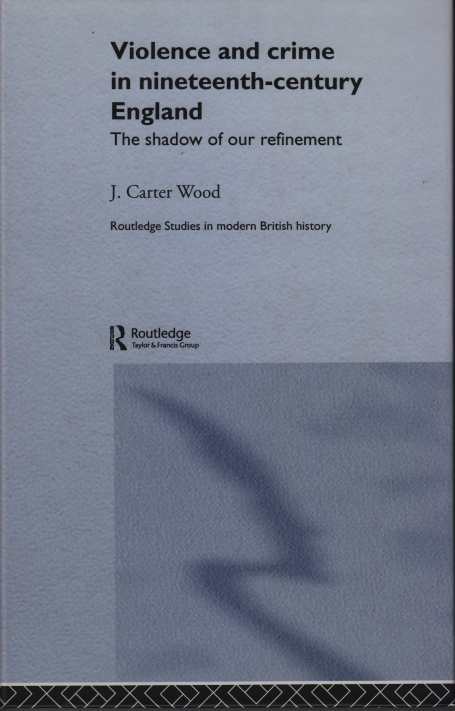
Publisher’s website
Description
This book illuminates the origins and development of violence as a social issue by examining a critical period in the evolution of attitudes towards violence. It explores the meaning of violence through an accessible mixture of detailed empirical research and a broad survey of cutting-edge historical theory. The author discusses topics such as street fighting, policing, sports, community discipline and domestic violence and shows how the nineteenth century established enduring patterns in views of violence.
Violence and Crime in Nineteenth-Century England will be essential reading for advanced students and researchers of modern British history, social and cultural history and criminology.
Media
The Violent Highway documentary, BBC One and Two (I acted as academic consultant).
Reviews and comments
[This book] provides the closest and most careful analysis yet done of just what violence meant in the everyday life of ordinary Englishmen for much of the nineteenth century. Wood has added a new dimension to our understanding of the history of violence and of the textures and processes of nineteenth-century English society.
Martin Wiener, Journal of Social History
The popular success of Sarah Wise’s The Italian Boy: Murder and Grave-Robbery in 1830s (London, 2004) demonstrates that there is considerable interest in the more nefarious aspects of nineteenth-century English life. J. Carter Wood’s book demonstrates that there are also social and cultural historians who are not afraid to contextualize and probe the stated understandings of that era. The period 1820-70, although much researched and enriched with primary sources, is a difficult and ambiguous period on which to write well. Wood writes well and he does us all a service when he reminds us that as far as the narrative on the history of violence is concerned, the past has only just happened.
Jack Anderson, British Journal of Criminology
In particular, Wood makes fascinating use of trial depositions to reconstruct the elaborate rituals surrounding early nineteenth-century plebeian street fights. In doing so, he brilliantly demonstrates how the conduct of such fights often closely mirrored the rituals of prize-fighting.
Jon Lawrence, Journal of Victorian Culture
Some historians of the eighteenth century and earlier may dispute the contention that violence as a social issue was an invention of the early nineteenth century. In the same vein, it might be argued that the impact of civilization has been overdrawn. Aside from this, Violence and Crime in Nineteenth-century England successfully crystallizes something essential about the nineteenth century. The complexity of the hypothesis and analysis will make this a difficult read for most undergraduates. However, this sophisticated, scholarly and impressive book will no doubt become indispensable reading for all interested in social order and disorder.
Alyson Brown, Social History
This book is the product of an impressive and energetic intelligence.
Simon Devereaux, Law and History Review
Violence and Crime in Nineteenth-Century England is theoretically informed by the ideas of Elias and Foucault and empirically grounded in first-hand accounts of violent acts. This combination of strengths makes it a useful addition to the growing body of work that attempts to explain long-term trends in violence.
Ian O’Donnell, Figurations